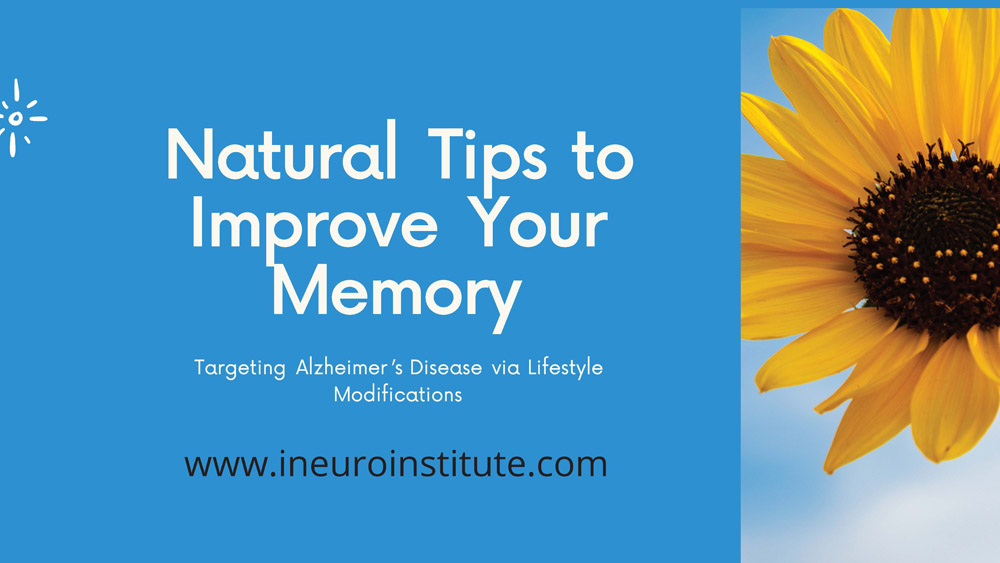I’m Dr. Smita Patel, a neurologist and sleep specialist. I have also had additional training in integrative and functional medicine. Initially, the opportunity to share information was only provided in a face to face visit. Now, I would like to take a different approach. With this in mind, I wanted the information to be available to individuals who have limited access due to socioeconomic barriers or geographical location.
My professional credentials:
– Over 20 years of experience as a physician managing neurological and sleep conditions
– I am an experienced and engaging public speaker on topics of Brain health, Alzheimer’s disease, integrative treatments on sleep, wellness and healthy lifestyle habits
– Participated in clinical research studies in the area of sleep medicine and have written book chapters for several academic publications on neurological and sleep disorders
I am driven to empower you to be proactive about your cognitive health and wellbeing.
And I diligently strive to provide quality integrative, whole-person care that improves the health and lives of the underserved or anyone who wants to benefit. I want to shift the current paradigm towards wellness, prevention, patient empowerment, and self-care and ultimately close the gap in health disparities.
By 2035, the number of older adults age 65 and older will exceed the number of children for the first time in American history. Each day, 10,000 people turn 65, and that will continue for years to come. By 2050, 22 percent of the world’s population will be 60 and over, and the number of older adults will exceed the number of children under the age of 15.
An aging world calls for all countries and communities to envision a world purposefully adapted to the needs of older adults. Bolstering this imperative vision is that such a world benefits people of all ages. Now is the time to generate new ideas and bold solutions so everyone can decide where and how they want to age.
Yours, in good brain health,

Smita Patel, DO, FAASM, ABOIM
It wasn’t all that long ago that I lacked the knowledge and mindset to improve my own health and have the edge that I needed to be the person I wanted to be and do the things I wanted to do.
Fast forward many failed attempts and lessons learned and I’ve overcome many familiar obstacles to a healthier me.
When I was pregnant with my second child, my doctor told me that I had gestational diabetes.
Not “if”, but “when” I get “real” diabetes would be within 5 years!
“I want to share with you the lessons I’ve learned, the trials I’ve faced, and the mistakes I’ve made, so that you can avoid them. “
I was sitting as a patient with my endocrinologist when I heard this news. I couldn’t believe I would be under 40 years of age and was heading toward having a chronic disease condition. Being a doctor, I knew that diabetes was connected to high blood pressure, high cholesterol, sleep apnea, and the D word (dementia).
If you asked me then, I probably expected to get diabetes way later in my life. Of course, I have a family history of diabetes but those family members were diagnosed in their 60’s or 70’s. Why did it happen to me so early? The reality is that I had my fair share of fried and sugary foods, yo-yo exercising, and probably didn’t get enough sleep.
During pregnancy, I had to take insulin to control my blood sugars. I was poking my fingers several times a day to check my blood sugars and then I had to inject insulin in my belly. I can say, I felt like a pin cushion. I was in disbelief this was even happening to me.
Nutrition wasn’t taught during my osteopathic medical school training. It wasn’t until I took further classes in functional nutrition, and learning much more during my fellowship with Dr. Andrew Weil at The University of Arizona, when I realized how poorly I had been eating and living.
Luckily, and with much effort, I do not have a diagnosis of diabetes to this day.
My second pregnancy affected me in a good way. Of course, I was blessed with a healthy baby girl too. But I also started to examine my daily food and exercise regimen. I improved my sleep habits. I learned functional and integrative medicine and applied it to my own life. I knew how diet, sleep and lifestyle were interconnected and how it impacted my own brain health. Even more, I knew the strong connection of diabetes and dementia and other disorders. The whole experience is why I started this journey of brain wellness.
Being Triple Board Certified, I want to share with you the lessons I’ve learned, the trials I’ve faced, and the mistakes I’ve made, so that you can avoid them.
Early interventions to reduce your risk for dementia – backed by science!
Come join me!
Healthy Eating Without Feeling Deprived
What Diet is the Best?
Tips for Better, Deeper Sleep
Why is Physical Exercise Important for Your Brain Health
Strategies to Improve Quality of Life
How to Make Changes Long Lasting


